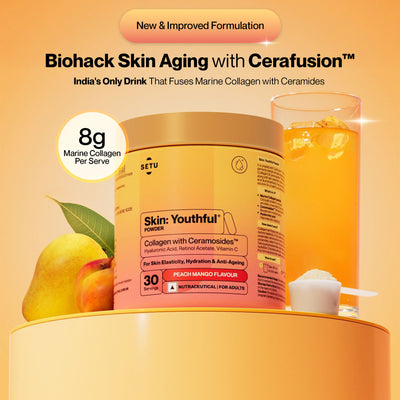High Cholesterol In Your 20s and 30s? Causes & Prevention
10 Jan 2020
Did you know that high cholesterol is not just an ‘old-age’ problem, people now suffer from it in their 20s and 30s too? Know more about the risk factors and preventive measures.
High cholesterol is known to affect people in their later stages of life. However, developing such issues in your 20s and 30s is extremely common now, and also ignored by most! The chances of getting long term heart diseases are high when you have a high cholesterol level at this age. If you’ve been experiencing symptoms such as left-sided chest pain, dizziness, breathlessness or pain in the legs, then you should consult a doctor soon. Meanwhile, we tell you all about this lifestyle disease affecting young people.
Causes Of High Cholesterol Levels In Young Age
According to the National Institutes of Health, your total cholesterol level should ideally be below 200 mg/dL. Anything over 240 mg/dL is considered high . The causes of high cholesterol could include any of the following reasons.
 1. Consuming Saturated Fats & Trans Fats
1. Consuming Saturated Fats & Trans Fats
If your diet is rich in saturated fats especially meat and full-fat dairy products, your low-density lipoprotein (LDL) or bad cholesterol can become high. Additionally, trans fats are normally found in fried and baked foods. It can increase your LDL and lower your high-density lipoprotein (HDL) or good cholesterol .
2. Processed Foods
Packaged and ready to consume foods can also increase the bad cholesterol levels in the body. These contain chemicals, preservatives, high amounts of sugar and salt, and of course fat, which adversely affect the functioning of the liver and the heart, leading to multiple diseases including high cholesterol.
3. Sedentary Lifestyle
If you are a person who doesn’t engage in any physical activity, then your LDL levels might just be high . Exercise stimulates enzymes that transport LDL from the blood (and blood-vessel walls) to the liver. From there, this cholesterol will be converted into bile (for digestion) or excretion. Therefore, the more you exercise, the more LDL your body expels.
4. Family History
Genetic factors can also be one of the major reasons for high cholesterol levels, especially a family history of high cholesterol. Such a condition is known as familial hypercholesterolemia. It causes LDL to be high even when you follow a healthy lifestyle.
Controlling Or Preventing A Rise In Cholesterol
1. Engage In Physical Activity

Make sure to set apart at least 30 minutes for a workout every day. This will help in losing weight and boosting the HDL cholesterol level. Exercise is regarded as one of the most effective and important methods of prevention of high cholesterol.
2. Consume A Fiber-Rich Diet
Several studies have reported that the intake of viscous dietary fiber can decrease low-density lipoprotein cholesterol . Try to include fiber-rich foods in your diet such as whole grains, beans, ladies finger, avocado, apple, pear, etc. These foods contain soluble fiber that blocks cholesterol from being absorbed into the bloodstream from the intestines.
 3. Minimize High-Carb Foods
3. Minimize High-Carb Foods
A low carbohydrate diet can positively influence the cholesterol levels in your body. It suppresses the appetite and aids in weight loss. Losing weight will help lower your LDL, total cholesterol, and triglyceride levels. At the same time, it can help you raise your HDL .
4. Have Healthy Fats
Instead of trans fats and saturated fats, include healthy fats in your diet such as monounsaturated fats and polyunsaturated fats. These can help lower LDL cholesterol levels while increasing HDL . These nutrients for the prevention of high cholesterol can be obtained from nuts, seeds, and fatty fish or fish oil supplements.
5. Drink Pomegranate Juice

Antioxidants can reduce low-density lipoprotein (LDL) or bad cholesterol. Pomegranate juice contains thrice the number of antioxidants present in green tea or red wine. Therefore try having a glass of pomegranate juice every day .
6. Quit Smoking
Several studies have shown that smokers have significantly lower HDL levels compared to non-smokers. This is because oxidants in smoke weaken the antioxidant enzymes in HDL . In addition to being one of the main reasons for high cholesterol, smoking is also associated with a higher risk of heart attacks or strokes.
7. Drink Alcohol In Moderation
Research shows that moderate alcohol consumption, especially red wine can raise your “good” cholesterol levels by increasing the speeds at which proteins are transported through the body. Drinking more than what is considered moderate, however, has an opposite effect, because it can raise both cholesterol and triglyceride levels . Moderate drinking means one drink per day for women and two drinks per day for men.
8. Lose Weight
Excess weight tends to increase your LDL and lowers HDL . Therefore, lose some weight to maintain a healthy cholesterol level in the body. It is possible by making simple dietary changes and maintaining a consistent workout schedule.
A high cholesterol level in the 20s and 30s can take its toll in the 50s and even 60s. Try to overcome it right from the initial stage. If you make a few changes in your dietary pattern and lifestyle, you can win the battle of lowering cholesterol levels in the body.
Skin: Renew - Glutathione - Orange Flavour
- ₹1,994
- ₹1,994
-
₹2,600 - ( 23% OFF)
Categories
- Choosing a selection results in a full page refresh.
- Press the space key then arrow keys to make a selection.
this is the sidecart












